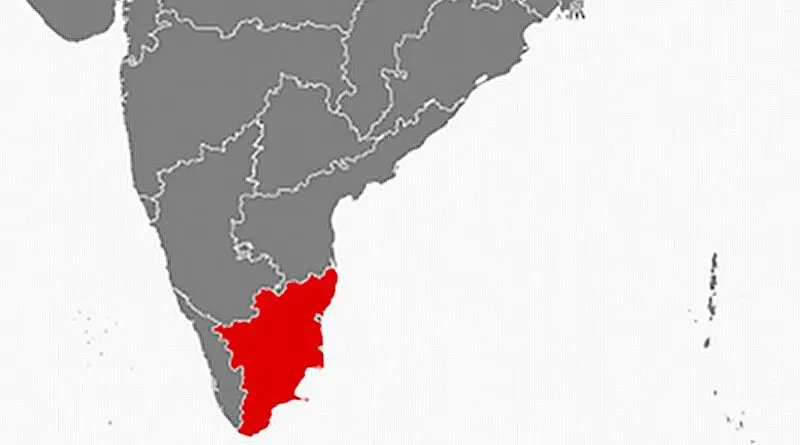Closure Of Sterlite Copper Plant In India: Political Decision Of Government – OpEd
After prolonged agitation against the operation of Sterlite Copper plant in Tuticorin in Tamil Nadu state (India) by determined group of people and with the protest turning into violent act resulting in police firing and death of 13 persons, Tamil Nadu Government ordered closure of Sterlite Copper plant in Tuticorin. Subsequently, the Tamil Nadu Government has repeatedly stated that the factory has been permanently sealed and closure order is permanent. This decision is viewed as knee jerk reaction by many discerning observers.
After careful consideration and study of various inter related factors, one gets an impression that the Tamil Nadu Government has not carefully assessed the technical aspects in a scientific manner and the pros and cons of its decision to close the Sterlite Copper unit permanently, which has an investment of over Rs.3000 crore and employ several thousands of persons.
It appears that the Tamil Nadu government decided to close the unit to buy peace with the protestors and agitators, who claim themselves to be activists or environmentalists or politicians with one unable to distinguish between them.
Views and counter views
While the protesters have been asserting that Sterlite Copper project is source of environmental pollution in Tuticorin, the company has vehemently denied this and has provided substantial data and information in support of its stand. While the views of the protestors received wide and repeated media publicity, the explanation given by the company was not reported in many section of media or reported partly and selectively. As a result, the explanation of the company has not been heard by most section of people.
In 2013, National Green Tribunal, after detailed investigation, has categorically judged that the cause of pollution in Tuticorin has not been due to operation of Sterlite Copper and therefore, it has allowed the unit to continue operation.
It appears that the primary accusation by the agitators against Sterlite Copper is the alleged emission of sulphur dioxide gas beyond the stipulated level. Sterlite Copper says that it has not been so.
There are four power projects in Tuticorin where coal is used as fuel for the power plant and these power plants do not have flue gas desulphurization facility, to prevent letting out the sulphur dioxide gas beyond stipulated level, if any. There is also one more sulphuric acid plant operating in Tuticorin. Sterlite Copper’s plant has desulphurization facility in its sulphuric acid unit, which would ensure that no sulphur dioxide gas would be let out beyond the stipulated level. Nobody is investigating whether sulphur emission, if any, could have happened due to any other source in Tuticorin area.
Other accusation against Sterlite Copper operations is that its operation cause cancer disease and asthma etc. in the local regions. There is no authenticated proof for this complaint. Such diseases are prevalent everywhere in India, where there is no copper smelter plant in operation.
There are two other copper smelter units in India and more than one hundred sulphuric acid units in India in operation, where such accusations have not been made and all of them have similar design parameters and operations.
Closure order on flimsy ground
It should be noted that the Tamil Nadu Pollution Control Board in its recent order to close down unit has not accused the unit of letting out sulphur dioxide beyond stipulated level nor has it said that the operation of the unit was causing cancer etc.
Tamil Nadu Pollution Control Board states some other reasons to justify it’s closure decision, which certainly does not call for permanent closure of the unit. Sterlite Copper company has challenged the decision of the Tamil Nadu Pollution Control Board and the matter is now before judiciary.
Impact of the closure
With the closure of Sterlite Copper unit, price of sulphuric acid in Tamil Nadu and nearby region has increased by 150 % due to supply shortage. Sterlite Copper produces around 40% of the Indian production of copper. With the closure of unit, India has now become net importer of copper, whereas it was net exporter of copper earlier. Tamil Nadu government itself has said that the copper shortage is now felt in Tamil Nadu, after closure of the unit. Around 800 tiny and small scale units which have been executing work for Sterlite Copper plant or dependent on raw material supply from Sterlite Copper and located near Tuticorin region are now reported to be facing closure. Around 10000 persons have lost their jobs and behind each person, there is a family 4 to 5 people.
Why permanent closure?
Even assuming Sterlite Copper has not operated the plant as per stipulated standards, then appropriate action would have been to stop the plant and appoint an investigative team to suggest remedial measures and ensure that such steps would be implemented by the unit before restarting.
Such is the practice all over the world in the case of industrial units, where objections are raised
Recently, there was a serious accident in a factory operated by DuPont in USA and a few workers died. DuPont is a safety conscious company of world standards and even in such company, accident happened. DuPont stopped the plant and found out the reasons and is taking steps to implement remedial measures. Government of USA will impose fine on the company. However, the plant will not be closed permanently.
A bad precedent
By ordering permanent closure of the large unit in the wake of organised protest ,without investigating the real facts and bowing to the pressure of protestors who have received excessive media coverage, government of Tamil Nadu has now created an impression that a group of protestors can ensure closure of any industrial unit or infrastructure project by applying sustained pressure.
By not ordering a thorough investigation by competent investigating team to find out the facts before ordering permanent closure, Tamil Nadu government has done a historical mistake.

